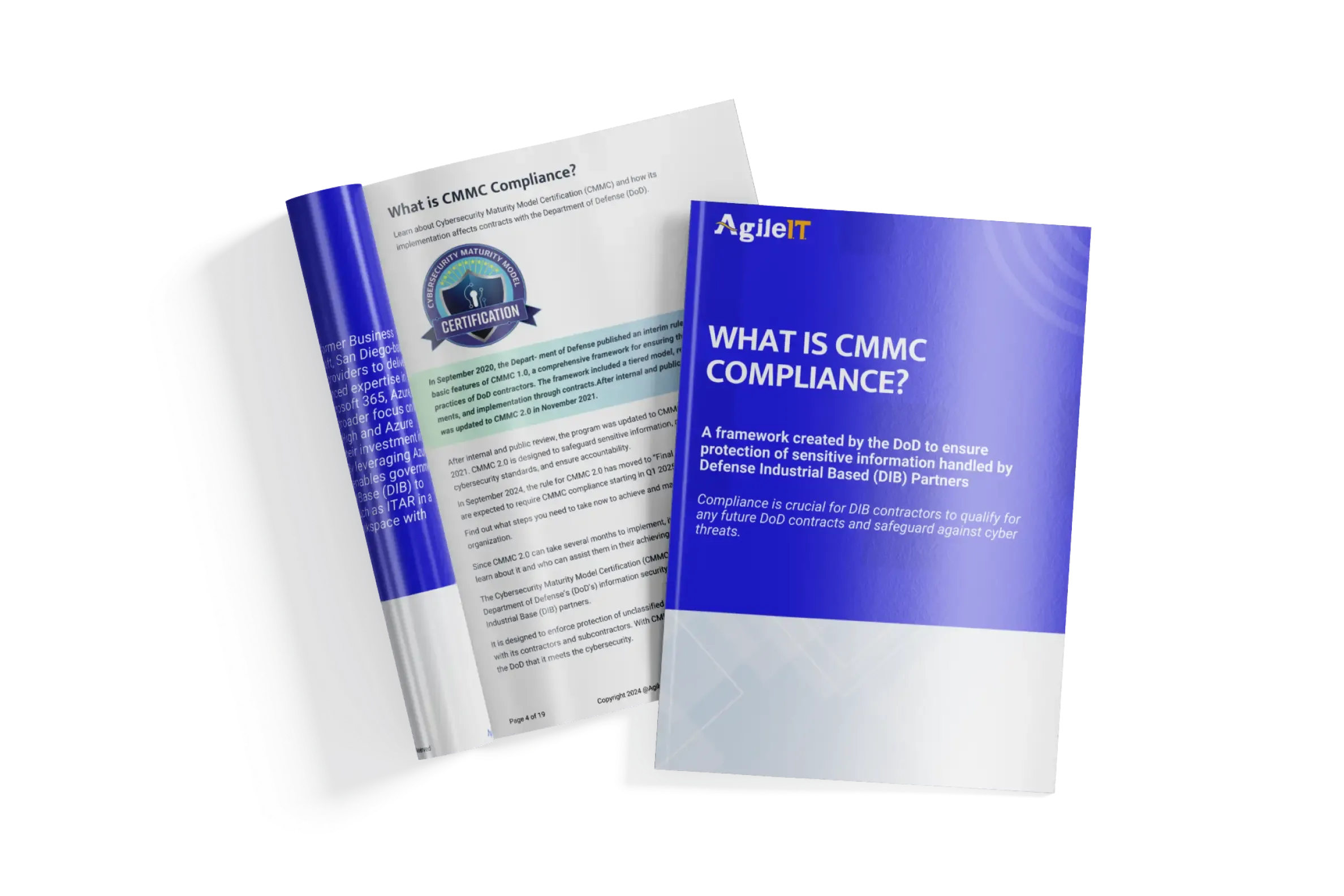Top Questions to Ask Your Managed Service Provider (MSP)
Looking for a new MSP? Stay ahead with the top questions to ask—from security and scalability to pricing and offboarding. Vet your provider with confidence.

20 Questions to Ask a Managed Service Provider
Choosing a Managed Service Provider (MSP) is no longer just about IT support—it’s about risk, compliance, and trust. For organizations in the Defense Industrial Base (DIB), the stakes are even higher. The CMMC 2.0 framework demands more than basic cybersecurity hygiene. It requires a deep understanding of NIST SP 800-171, DFARS clauses, and Controlled Unclassified Information (CUI) handling.
Unfortunately, many traditional MSPs don’t have the knowledge or experience to navigate the unique requirements of CMMC. They may offer general security services but lack the capability to map their responsibilities to regulatory controls—or worse, leave gaps in documentation and enforcement that could jeopardize your contract eligibility.
That’s where working with a compliance-focused MSP makes a difference. You need a provider that treats CMMC as a living, evolving framework—and supports your environment, processes, and people accordingly.
Let’s walk through the questions you should be asking—and why they matter.
CMMC & Regulatory Expertise
When evaluating an MSP for CMMC support, your first priority should be their regulatory fluency. Compliance is more than a checklist—it’s an ongoing, evidence-driven process.
Ask potential MSPs:
- Are you familiar with the CMMC 2.0 framework and its alignment with NIST SP 800-171? They should understand the technical and procedural safeguards outlined in the 14 families of controls, and how they tie into DoD expectations.
- Do you support clients at Level 1, Level 2, or both? Your MSP should be upfront about which levels they specialize in. Level 2 especially requires a deeper understanding of the NIST 800-171 baseline and its objectives.
- Do you understand DFARS 252.204-7012, 7019, and 7020? These clauses govern reporting, self-assessments, and external verification. A competent MSP must help you navigate them—not just acknowledge them.
- Do you understand the scoping guidance for CMMC? Misunderstanding CUI boundaries, asset types (e.g., security protection assets, contractor risk-managed assets), or enclaves can lead to failed assessments.
A qualified MSP should be able to explain how these standards interconnect and how they apply to your specific contracting obligations.
Readiness, Documentation & Support
CMMC compliance isn’t something you can wing. A strong MSP partner should not only understand the framework but actively guide your preparation and documentation.
Key questions to ask:
-
Do you help prepare required CMMC documentation such as the System Security Plan (SSP) and Plan of Action and Milestones (POA&M)? These two documents are non-negotiable for any organization seeking CMMC certification and must be kept updated.
-
Can you support pre-assessment readiness or mock assessments based on CMMC assessment guides? Your MSP should conduct readiness reviews and simulate audit scenarios to surface any weaknesses before a formal review.
-
Can your team support us during a C3PAO assessment or DIBCAC review? Support shouldn’t stop once documentation is in place—your MSP should stand with you through every phase of your compliance journey.
-
Can we retain your services only for pre-assessment or readiness, or do you require a full MSP agreement? This flexibility matters—some organizations need focused help getting ready, not a full service contract.
These questions ensure your MSP is not just a tool provider, but a compliance partner who can carry you from preparation to certification.
Governance, Oversight & Communication
A good MSP doesn’t just execute—it governs, informs, and stays in sync with your evolving needs. You need clarity on responsibilities, communication cadence, and how compliance is maintained over time.
Ask these questions to evaluate their governance model:
- How do you document your responsibilities versus ours in terms of compliance ownership? Clear delineation is essential to avoid gaps during audits or incidents. Look for detailed RACI charts or contract language.
- How do you ensure continuity of compliance as our environment or contract requirements change? MSPs should track regulatory updates and proactively adjust their services and your environment as necessary.
- How frequently will we receive compliance or security posture reports? Regular reporting helps you monitor progress and maintain confidence with stakeholders and leadership.
- Will we have access to a dedicated account manager or compliance advisor? CMMC isn’t one-size-fits-all. You’ll want a named resource who understands your environment, not a rotating helpdesk.
- How do you communicate urgent threats or compliance gaps? Time matters. Your MSP should have a defined escalation protocol for risk or non-compliance, ideally with a dashboard and alerting.
These questions help ensure your provider is invested in long-term compliance , not just short-term deliverables.
Flexibility, Scalability & Subcontractor Support
As your contracts and environments evolve, your MSP should scale with you—without locking you into rigid models or leaving you unsupported across your supply chain.
Make sure to ask:
-
Do you offer tiered service levels that scale with our CMMC requirements? You should be able to start with what you need now and scale up as your contracts or environment grow in complexity.
-
Can you support flow-down requirements to our subcontractors or help us manage CMMC compliance at multiple tiers? If your supply chain handles CUI, your MSP should help enforce and monitor compliance beyond your own environment.
-
Do you provide any guarantees or contractual assurances regarding compliance status or audit support? While no one can guarantee certification, a strong MSP should back up their work with transparent SLAs and assessment support.
-
Have you worked with any Organizations Seeking Certification (OSCs)? Can you provide references or case studies? Real-world experience matters. Look for MSPs with proven success helping DIB clients get ready for (and pass) audits.
Looking for a Trusted Partner to Support Your CMMC Compliance?
Choosing the right Managed Service Provider is a critical step in your CMMC journey. Whether you’re preparing for a formal assessment or just beginning to align with NIST SP 800-171, asking the right questions helps ensure you’re partnering with an MSP that understands your unique compliance needs, your operational environment, and the evolving regulatory landscape. Our team is deeply engaged in supporting government contractors and subcontractors with scalable, proactive services that prioritize both security and long-term audit readiness.
Our team specializes in helping DIB contractors meet CMMC requirements with tailored managed services, readiness assessments, and scalable support.
👉 Schedule a Strategy Call to talk with our compliance team.






